Shyni Thomas
Decentralised Approach for Multi Agent Path Finding
Jun 03, 2021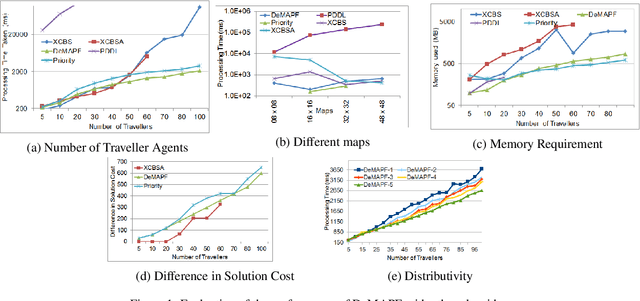

Abstract:Multi Agent Path Finding (MAPF) requires identification of conflict free paths for agents which could be point-sized or with dimensions. In this paper, we propose an approach for MAPF for spatially-extended agents. These find application in real world problems like Convoy Movement Problem, Train Scheduling etc. Our proposed approach, Decentralised Multi Agent Path Finding (DeMAPF), handles MAPF as a sequence of pathplanning and allocation problems which are solved by two sets of agents Travellers and Routers respectively, over multiple iterations. The approach being decentralised allows an agent to solve the problem pertinent to itself, without being aware of other agents in the same set. This allows the agents to be executed on independent machines, thereby leading to scalability to handle large sized problems. We prove, by comparison with other distributed approaches, that the approach leads to a faster convergence to a conflict-free solution, which may be suboptimal, with lesser memory requirement.
Multi Agent Path Finding with Awareness for Spatially Extended Agents
Sep 20, 2020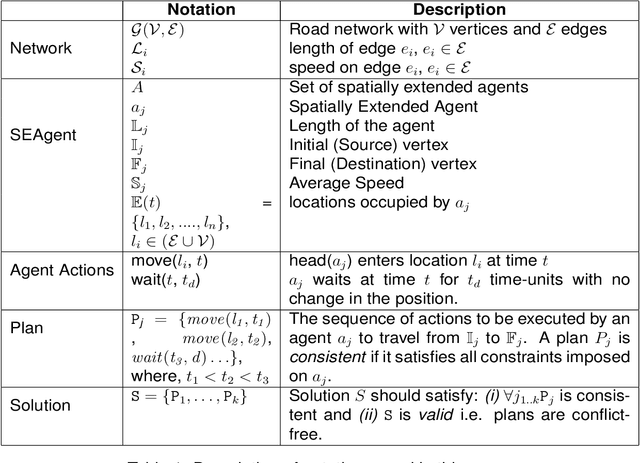
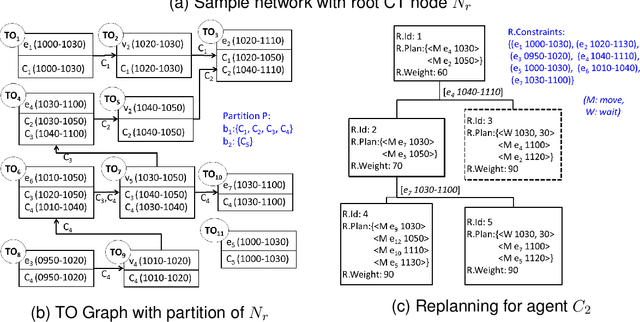
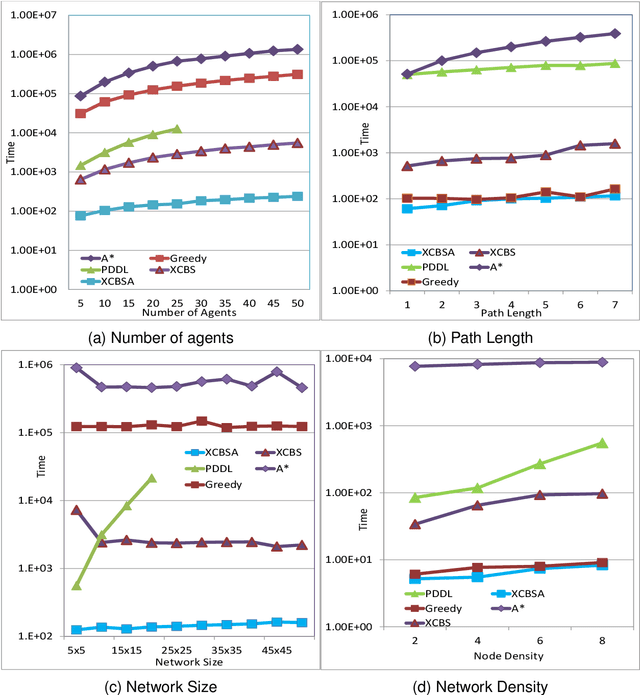
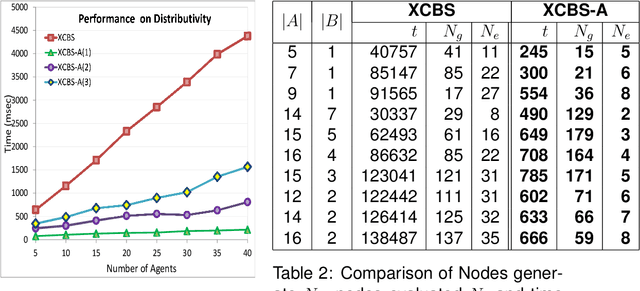
Abstract:Path finding problems involve identification of a plan for conflict free movement of agents over a common road network. Most approaches to this problem handle the agents as point objects, wherein the size of the agent is significantly smaller than the road on which it travels. In this paper, we consider spatially extended agents which have a size comparable to the length of the road on which they travel. An optimal multi agent path finding approach for spatially-extended agents was proposed in the eXtended Conflict Based Search (XCBS) algorithm. As XCBS resolves only a pair of conflicts at a time, it results in deeper search trees in case of cascading or multiple (more than two agent) conflicts at a given location. This issue is addressed in eXtended Conflict Based Search with Awareness (XCBS-A) in which an agent uses awareness of other agents' plans to make its own plan. In this paper, we explore XCBS-A in greater detail, we theoretically prove its completeness and empirically demonstrate its performance with other algorithms in terms of variances in road characteristics, agent characteristics and plan characteristics. We demonstrate the distributive nature of the algorithm by evaluating its performance when distributed over multiple machines. XCBS-A generates a huge search space impacting its efficiency in terms of memory; to address this we propose an approach for memory-efficiency and empirically demonstrate the performance of the algorithm. The nature of XCBS-A is such that it may lead to suboptimal solutions, hence the final contribution of this paper is an enhanced approach, XCBS-Local Awareness (XCBS-LA) which we prove will be optimal and complete.
 Add to Chrome
Add to Chrome Add to Firefox
Add to Firefox Add to Edge
Add to Edge